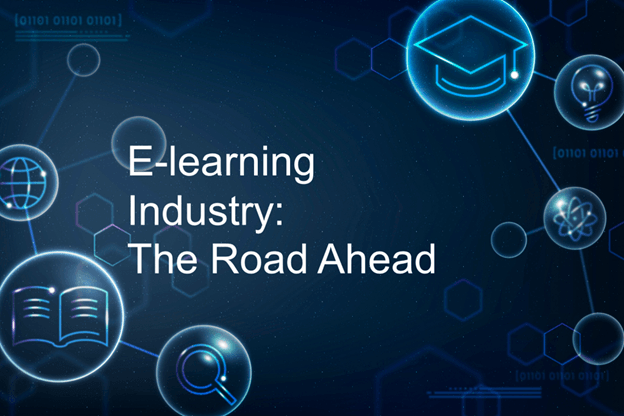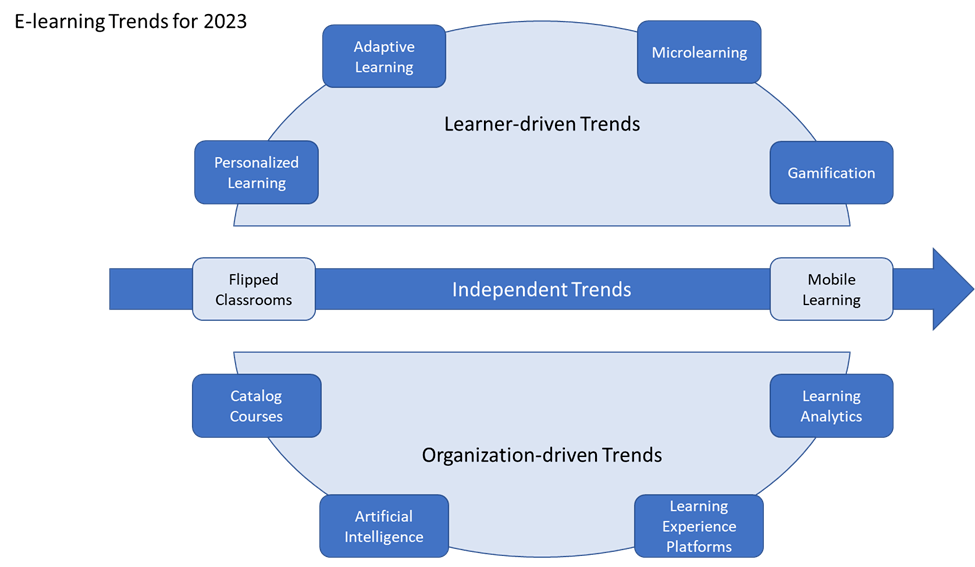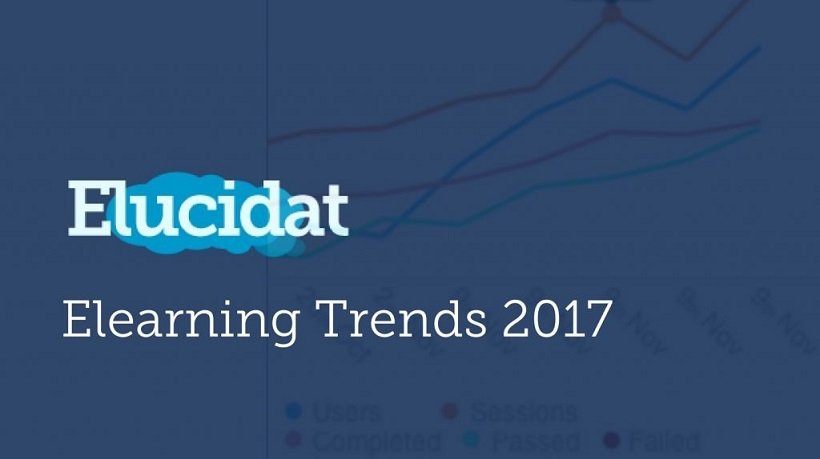eLearning Trends 2023
Hello there! We are back to work after reluctantly shaking off our post-holiday blues. Our lead Instructional Designer has just the tonic to wake us up and take on the new year with all our creativity and focus...let’s take a look at what she thinks the eLearning landscape will look like in the coming year. The last two years have been very challenging. The disruptions brought by the pandemic put the eLearning industry on a fast track. Along with many other things, the pandemic did change our perception of knowledge and learning. With economic uncertainty and recession now looming over the horizon, lifelong learning is the new mantra.
Studies forecast that the global eLearning market will grow by $45,000 million between 2023 and 2027 [1]. The global compound annual growth rate (CAGR) for the industry is expected to be 12.19% and the Indian eLearning service providers sector is set to see growth of a whopping 30% [2]. Other key market drivers include an increase in student population, the growth of shadow education, expanding social presence, and the rise of social and collaborative learning. To ace the race in such a competitive market, it is critical to understand what is trending and what is not, from two standpoints: first, the learners who consume the content, and second, the organizations that support and drive learning. Let us explore some key trends in eLearning and how to adopt them.

Key Learner-Driven Trends In eLearning For 2023
1. Augmented Reality And Virtual Reality Technologies
Immersive learning experiences are here to stay. Augmented Reality (AR) and Virtual Reality (VR) technologies that were once limited to video games or 3D movies have now crept into the education sector. These up-and-coming technologies can be especially useful in:
- Simulating scenarios that are otherwise difficult to create
- Creating visual overlays
- Providing 360-degree visuals that provide an immersive learning experience
AR and VR technologies are surefire ways of adding interactivity and making learning more engaging. Implementing AR and VR from the ground up is a complex task. You will need to use the expertise of teams well-versed in developing such products. Identify the team that can help you build an AR/VR learning solution, discuss your ideas, state your needs, and develop the solution.
If this is not a feasible solution, look for any open-access AR and VR resources that suit your eLearning course. For example, if your course discusses endangered/extinct species, you could check to see if there are any free-to-access 3D models available, and use them in your course to create an immersive experience.
2. Personalized Learning
The time for one-size-fits-all courses is over. We are now in the age of personalized learning. Gone are the days when learners had to consume what was offered. Many training providers offer personalized learning experiences to their learners. Consider the learner’s strengths, interests, aspirations, and needs, to build unique learning programs that meet very specific learning needs.
3. Adaptive Learning
Design and develop learning programs that can adapt. Tailor them to match the skills, needs, and interests of every learner. You may wonder how adaptive learning is different from personalized learning. Well, personalized learning is actually a subset of adaptive learning. There are specialized algorithms to implement adaptive learning, but adaptive learning can be introduced in simpler ways also. While adaptive learning provides custom learning programs, personalized learning aligns with the learner’s progress and allows the learner to customize learning. You can implement adaptive learning by:
- Creating alternate learning paths
- Adding optional learning content as tool tips, sidebars, etc.
- Using assessments to allow learners to either delve deep into, or skip, a module altogether
- Assigning learning material based on learners’ roles or performance
4. Microlearning
Our trusted friend microlearning is still trending. With adult learners’ attention spans shorter than that of a goldfish, how can it ever go out of fashion? Microlearning helps chunk learning into bite-sized content and can be effectively used as a reinforcement tool. Help learners retain knowledge better by delivering focused and specific learning content in short bursts at regular intervals. Learners can consume your content at a time and place that suits them.
5. Gamification
Add a competitive angle to your eLearning program using gamification techniques. Gamification, in simple terms, is the addition of game-like elements to a non-game environment. Motivate your learners with the right mix of challenges, rewards, and performance-based level advancements. Ensure that the gaming aspect of your learning program is compelling, habit-forming, and nudges the learners to play towards the right goal.

Key Organization-Driven Trends In eLearning For 2023
1. Catalog Courses
Catalog courses are ready-to-consume eLearning courses designed and developed by industry experts. Catalog courses are also known as off-the-shelf courses. These courses can be plugged directly into the organization’s L&D program and can be consumed immediately. A wide range of topics can be covered in catalog courses. Two key benefits of catalog courses are reduced costs and faster time to train.
Unsure of how to use these? Start small. Pick a much-sought-after course within a center of excellence (CoE) or delivery unit in your organization. Team up with a Subject Matter Expert to build three variations of the same course, each of varying difficulty levels (easy, intermediate, and advanced). Roll out within the CoE. Evaluate the effectiveness of the courses. The next step is to make a list of courses that would be beneficial to the majority of your workforce. Repeat the same exercise, and extend it across your organization.
2. Artificial Intelligence
Artificial Intelligence (AI) is slowly becoming a significant part of our lives, and, the eLearning industry is no exception. AI can be effectively used to make learning more holistic. Use the power of AI to make your courses personalized and adaptive. For example, if a learner is taking a course on Python, the recommendation engine can be used to suggest machine learning or deep learning courses. Or, based on the learner’s progress, the platform can present material of increasing complexity, nudging the learner to master concepts.
Strategize and organize learning material based on learners’ needs and challenges. You can understand learners’ behavior, track their performance, and use the data to create tailored curriculums for every learner. AI helps bridge knowledge gaps better. The other areas that you can tap into are creating AI-powered educational games and developing AI-enabled teachers’ assistants that can interact in a human-like manner.
3. Learning Analytics
In the data-driven world that we live in, analytics play a key role. Organizations worldwide are setting aside significant budgets to upskill their employees. Learning analytics provide insights into the efficiency of L&D activities. These insights help strategize learning activities, optimize costs, and make informed business decisions in the L&D space. Almost all Learning Management Systems (LMSs) come with analytics capabilities. You can unleash the power of data analytics to understand the courses that are most effective, content engagement rates, completion rates, and the courses that learners are searching for, to name a few use cases. Use analytics wisely, to build a thriving learning culture.
4. Learning Experience Platforms
We hear the buzzword Learning Experience Platform or LXP everywhere these days. What is it? How different is it from our good old friend, LMS? Well, both LMSs and LXPs are tools that help training providers manage the delivery of eLearning courses. While an LMS offers a traditional top-down approach to learning, an LXP acts more like a personal learning portal. LXPs help learners create their learning journey. Relevant learning content will then be aggregated and provided to the learners, helping them reach their learning goals.
LXPs are valuable tools in an organization’s L&D quiver. They do not replace LMSs. They, however, enrich the learning experience by providing personal learning portals within the organization’s LMS. A combination of the trends in eLearning that we’ve discussed so far can help you transform your existing LMS into a rich Learning Experience Platform. Here’s how.
- Personalize learning
Through dashboards, landing pages, and auto-assigning learning content (based on course completion, role, etc.). - Use gamification techniques
To your benefit. The right mix of these can easily mimic an LXP. - Create multiple learning paths
This can be done through performance-based learning advancements, or branching scenarios. - Leverage the power of recommendation engines
Present a list of recommended courses that are tailored to the learner’s needs and interests. - Create custom reports
They help learners track and assess their learning.
The other constants that are set to shape the eLearning industry this year are flipped classrooms and mobile learning.
Have you zeroed in on the trends in eLearning that you would adopt yet? Good luck creating enriching learning experiences!
References:
[1] Global Corporate E-learning Market 2023-2027
Image Credits:
- Images within the body of the article were created/supplied by the author.










